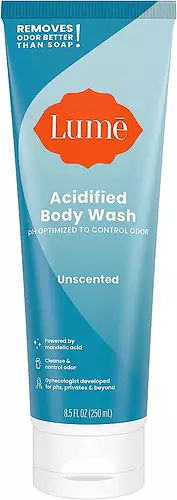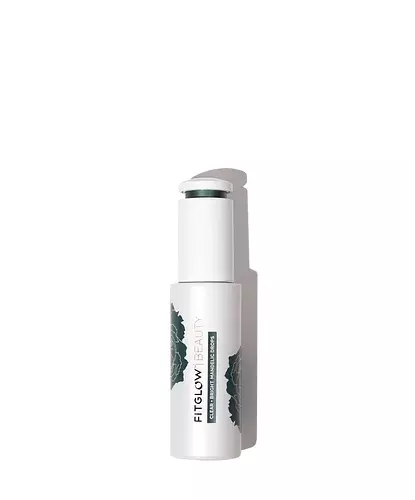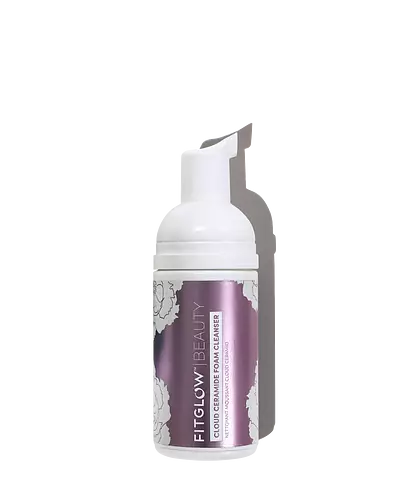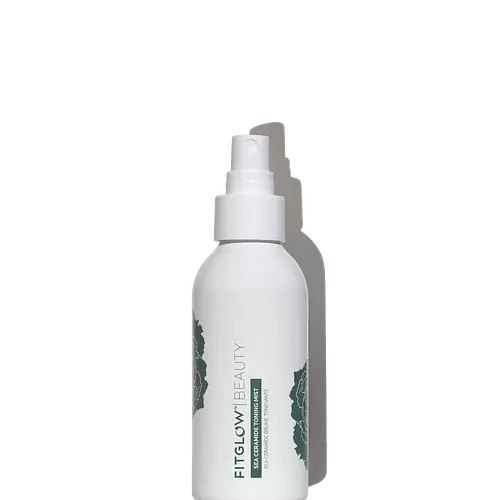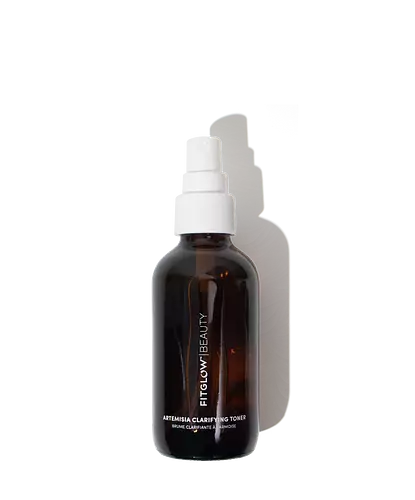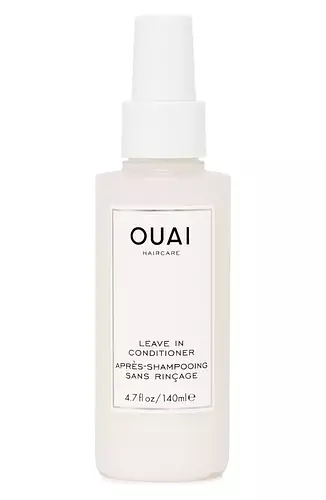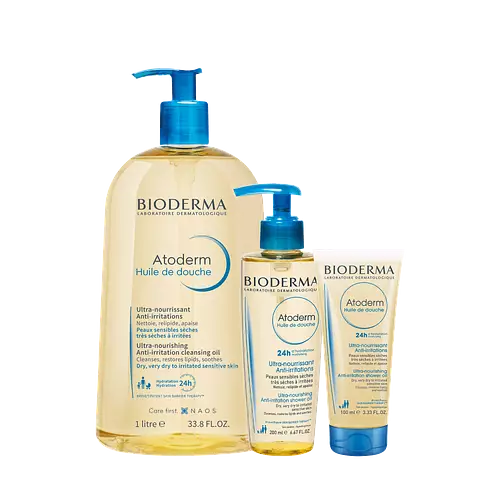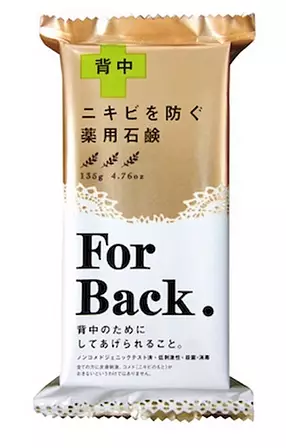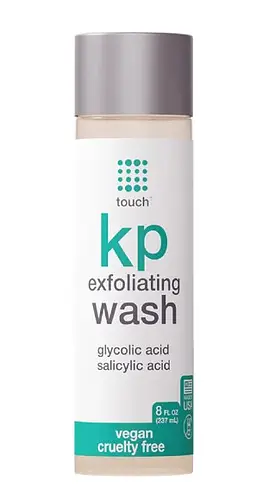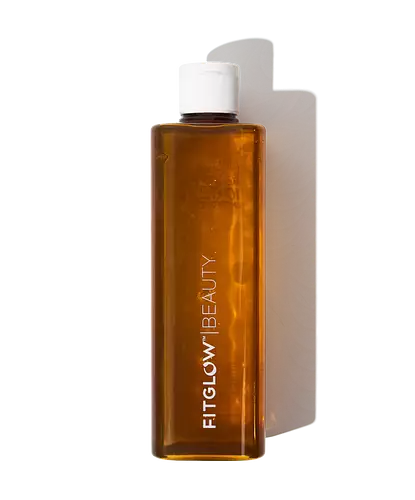
Fitglow Beauty Cloud Body Wash Ingredients Explained
Updated on March 04, 2024 Submitted by Soya
Overview
What it is
Body wash with 17 ingredients that contains ceramides
Cool Features
It is vegan, cruelty-free, and reef safe
Suited For
It has ingredients that are good for anti aging, dry skin, brightening skin and sensitive skin
Free From
It doesn't contain any harsh alcohols, common allergens, oils, parabens or silicones
Fun facts
Fitglow Beauty is from United States.
We independently verify ingredients and our claims are backed by peer-reviewed research. Does this product need an update? Let us know.
Body wash with 17 ingredients that contains ceramides
Quick info
You should know
Notable Ingredients
This product contains 1 ingredient that may have this attribute:
Benefits
This product contains 2 ingredients that may have this attribute:
This product contains 1 ingredient that may have this attribute:
This product contains 1 ingredient that may have this attribute:
This product contains 1 ingredient that may have this attribute:
This product contains 1 ingredient that may have this attribute:
Concerns
This product contains 1 ingredient that may have this attribute:
This product contains 1 ingredient that may have this attribute:
This product contains 1 ingredient that may have this attribute:
Ingredients 17
Water. It's the most common cosmetic ingredient of all. You'll usually see it at the top of ingredient lists, meaning that it makes up the largest part of the product.
Lauryl Glucoside sugar- and lipid-based cleansing agent. It is created from glucose and lauryl alcohol.
Coco-Glucoside is a surfactant, or a cleansing ingredient. It is made from glucose and coconut oil.
Glyceryl Oleate is a fragrance and isn't fungal acne safe.
Glycerin is already naturally found in your skin. It helps moisturize and protect your skin.
Inulin is a polysaccharide (carbohydrate) with prebiotic and antioxidant properties.
Cucumis Sativus Fruit Extract comes from the cucumber. Cucumis Sativus is native to South Asia and can now be found on every continent.
Citric Acid is an AHA derived from citrus fruits (think oranges, lemons, and limes!).
Chances are, you eat sodium chloride every day. Sodium Chloride is also known as table salt.
Dehydroacetic Acid is fungicide and bactericide. It is used as a preservative in cosmetics. Preservatives help elongate the shelf life of a product.
Potassium Sorbate is a preservative used to prevent yeast and mold in products. It is commonly found in both cosmetic and food products.
Water, Lauryl Glucoside, Coco-Glucoside, Sodium Coco-Sulfate, Glyceryl Oleate, Glycerin, Polyglyceryl-3 Caprate, Sorbitan Caprylate, Rubus Chamaemorus Fruit Extract, Inulin, Ceramide NP, Cucumis Sativus Fruit Extract, Citric Acid, Sodium Chloride, Citrus Aurantium Amara Flower Extract, Dehydroacetic Acid, Potassium Sorbate
Ingredient Ratings
Based on the number of likes and dislikes each ingredient has received.
Ingredients Explained
Water. It's the most common cosmetic ingredient of all. You'll usually see it at the top of ingredient lists, meaning that it makes up the largest part of the product.
So why is it so popular? Water most often acts as a solvent - this means that it helps dissolve other ingredients into the formulation.
You'll also recognize water as that liquid we all need to stay alive. Talk about multi-purpose! If you see this, drink a glass of water. Stay hydrated!
Learn more about WaterLauryl Glucoside sugar- and lipid-based cleansing agent. It is created from glucose and lauryl alcohol.
Lauryl Glucoside makes it easier to rinse oil, dirt, and other polluants away.
A British study found lauryl glucoside to cause skin sensitivity for some people. We recommend speaking with a professional if you have concerns.
Learn more about Lauryl GlucosideCoco-Glucoside is a surfactant, or a cleansing ingredient. It is made from glucose and coconut oil.
Surfactants help gather dirt, oil, and other pollutants from your skin to be rinsed away. Coco-Glucoside is considered gentle and non-comedogenic.
This ingredient is a known skin-irritant.
Learn more about Coco-GlucosideSodium Coco-Sulfate is a type of sulfate.
Glyceryl Oleate is a fragrance and isn't fungal acne safe.
Glycerin is already naturally found in your skin. It helps moisturize and protect your skin.
A study from 2016 found glycerin to be more effective as a humectant than AHAs and hyaluronic acid.
As a humectant, it helps the skin stay hydrated by pulling moisture to your skin. The low molecular weight of glycerin allows it to pull moisture into the deeper layers of your skin.
Hydrated skin improves your skin barrier; Your skin barrier helps protect against irritants and bacteria.
Glycerin has also been found to have antimicrobial and antiviral properties. Due to these properties, glycerin is often used in wound and burn treatments.
In cosmetics, glycerin is usually derived from plants such as soybean or palm. However, it can also be sourced from animals, such as tallow or animal fat.
This ingredient is organic, colorless, odorless, and non-toxic.
Glycerin is the name for this ingredient in American English. British English uses Glycerol/Glycerine.
Learn more about GlycerinWe don't have a description for Polyglyceryl-3 Caprate.
We don't have a description for Sorbitan Caprylate.
Rubus Chamaemorus Fruit Extract is an antioxidant.
Inulin is a polysaccharide (carbohydrate) with prebiotic and antioxidant properties.
The majority of inulin is extracted from chicory, but can also be obtained from other plants such as garlic, onion, asparagus, and sugarcane.
Studies show inulin may help with controlling your skin's natural microbiota when applied topically.
The antioxidant potential of inulin varies depending on the source.
Learn more about InulinCeramide NP is a type of ceramide.
Ceramides are intercellular lipids naturally found in our skin that bonds dead skin cells together to create a barrier. They are known for their ability to hold water and thus are a great ingredient for dry skin.
Ceramides are an important building block for our skin barrier. A stronger barrier helps the skin look more firm and hydrated. By bolstering the skin ceramides act as a barrier against irritating ingredients. This can help with inflammation as well.
If you would like to eat ceramides, sweet potatoes contain a small amount.
Read more about other common types of ceramides here: Ceramide AP Ceramide EOP
Learn more about Ceramide NPCucumis Sativus Fruit Extract comes from the cucumber. Cucumis Sativus is native to South Asia and can now be found on every continent.
Cucumbers are mostly made up of water (95%), and the other 5% is composed of: vitamin C, caffeic acid, fatty acids, amino acids, and other minerals.
Cucumbers have anti-aging, anti-inflammatory, and hydrating properties.
Vitamin C and Caffeic acid are potent antioxidants that may help with anti-aging. Antioxidants help neutralize free-radical molecules, or unstable molecules that may damage our skin cells and DNA.
Cucumbers contain shikimate dehydrigenase, an enzyme shown to help reduce inflammation and soothe the skin. The amino acids help nourish our skin's natural acid mantle. Our acid mantle is formed from the mixing of sebum and sweat. This slightly acidic film acts as a barrier to protect us from bacteria, viruses, and other contaminants.
Unless you have an allergy to cucumbers, it is generally a non-irritating ingredient.
Learn more about Cucumis Sativus Fruit ExtractCitric Acid is an AHA derived from citrus fruits (think oranges, lemons, and limes!).
If you spot Citric Acid near the end of an ingredient list, it's likely there as a pH adjuster rather than an active ingredient.
As an AHA, Citric Acid removes the top layer of skin cells from the newer layer of skin underneath. This helps skin to remove dark spots and look more even.
Read more about some other popular AHA's here:
Learn more about Citric AcidChances are, you eat sodium chloride every day. Sodium Chloride is also known as table salt.
This ingredient has many purposes in skincare: thickener, emulsifier, and exfoliator.
You'll most likely find this ingredient in cleansers where it is used to create a gel-like texture. As an emulsifier, it also prevents ingredients from separating.
There is much debate on whether this ingredient is comedogenic. The short answer - comedogenic ratings don't tell the whole story. Learn more about comegodenic ratings here.
The concensus about this ingredient causing acne seems to be divided. Research is needed to understand if this ingredient does cause acne.
Scrubs may use salt as the primary exfoliating ingredient.
Learn more about Sodium ChlorideWe don't have a description for Citrus Aurantium Amara Flower Extract.
Dehydroacetic Acid is fungicide and bactericide. It is used as a preservative in cosmetics. Preservatives help elongate the shelf life of a product.
Dehydroacetic Acid is not soluble in water.
Potassium Sorbate is a preservative used to prevent yeast and mold in products. It is commonly found in both cosmetic and food products.
Potassium sorbate is potassium salt derived from sorbic acid. Sorbic acid is a natural antibiotic and effective against fungus.
Potassium sorbate and sorbic acid can be found in baked goods, cheeses, dried meats, dried fruit, ice cream, pickles, wine, yogurt, and more.
Potassium sorbate is often used with stronger preservatives.
Learn more about Potassium SorbateWhen to use
How this product is used by our community
Directions
Massage all over the body, hands, and hair creating a soft lather. Rinse well.
Massage all over the body, hands, and hair creating a soft lather. Rinse well.
Compared With
Here are some products that it's often compared with
More Fitglow Beauty Products
See all Fitglow Beauty productsMore Body Washes
See all body washesWe're dedicated to providing you with the most up-to-date and science-backed ingredient info out there.
The data we've presented on this page has been verified by a member of the SkinSort Team.
Read more about us

